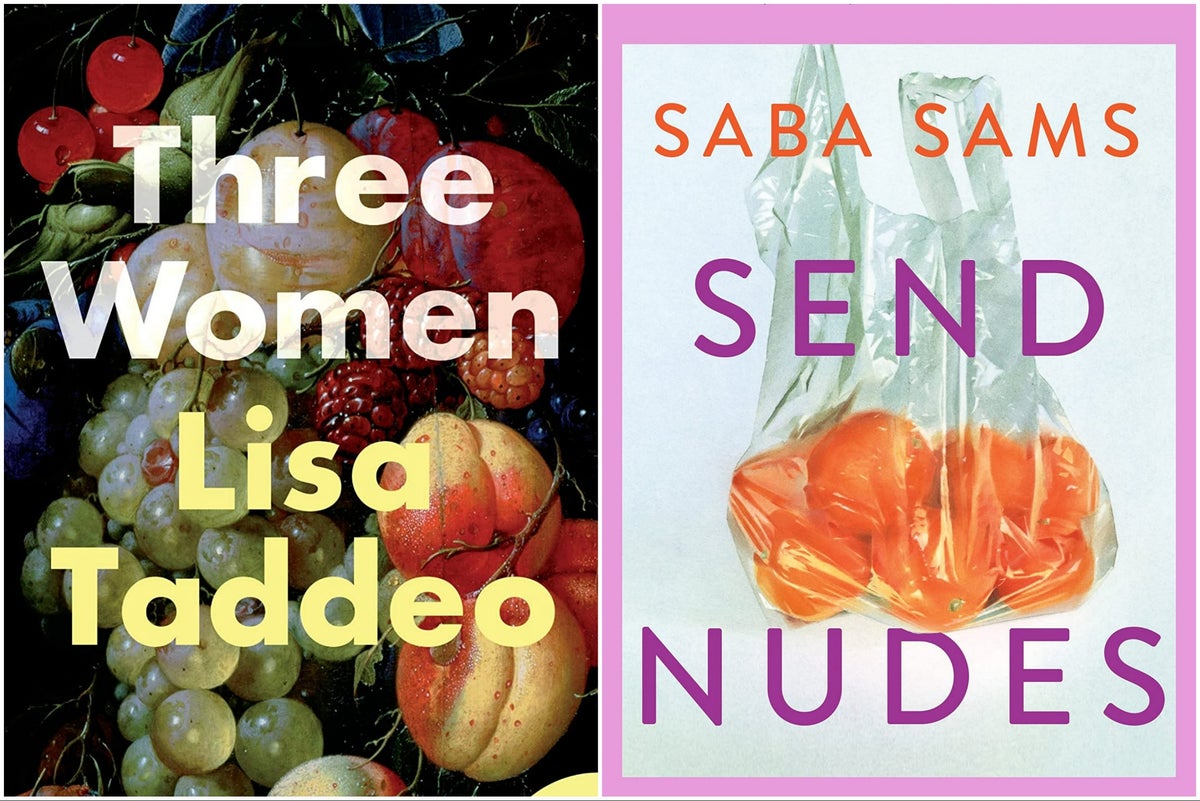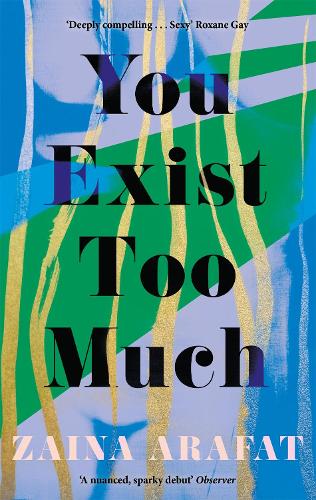
Thanks to the male gaze – that old thing – literature is saturated with flattening representations of women and their bodies. In fact, hashtags such as “#menwhowritewomen” are dedicated solely to exposing the clichéd language that some authors use to describe their female characters.
Inevitably, this has fed into unrelatable depictions of desire – from reductive ideas about women pining for the marriage-to-kids pipeline, to women not liking sex as much as men. But thankfully, there is a vast ocean of books embracing the reality of women’s desire, in all its messy glory, to set the record straight.
Read on for The Independent’s top picks.
I Love Dick by Chris Kraus
Although this cult classic is something of a marmite book, with Pandora Sykes recently admitting in her newsletter Bits and Bobs that she didn’t really “get” it, Kraus’s provocatively titled novel is an unabashed window into the obsessions of its protagonist (also called Chris Kraus). The story of Kraus’s desire for the object of her affections, Dick, is a cocktail of memoir, fiction, and essay – and a lesson on infatuation. While that is a state of mind normally associated with teenagers, I Love Dick puts the microscope on a married middle-aged woman. More than a “tell-all”, the self-aware “novel” poses wider questions about the cultural position of women. “Who gets to speak, and why?”, it asks readers. Whose desire is taken seriously, and whose is not? Despite being published more than 25 years ago, the book’s exploration of fantasy and its consequences sizzles with relevance.
I’m a Fan by Sheena Patel
If Dick doesn’t do it for you, then Patel’s recent debut might. Told from a single speaker’s perspective, even the naming of characters reflects the all-consuming nature of unrequited passions. Centred on an undeniably toxic relationship, I’m a Fan charts the main character’s fixation on the respectively named “man I am obsessed with”. Rather than being sentimental, the book is characterised by self-consciousness, and astute reflections on how class, race and heteronormative patriarchy intersect with our preferences. Written in short first-person chunks, its structure mirrors the frantic pace of obsession in the age of social media as Patel explores how the quest to be perceived in a certain way informs what, and who, we want.
Topics of Conversation by Miranda Popkey
Topics of Conversation is the story of an unnamed narrator told through snapshots of conversations with friends and family over the course of two decades. Touted as a must-read for fans of Sally Rooney, the novel scrutinises the social geometry of how we express our hopes and desires. Each vignette explores how women learn, embody, and refuse various cultural expectations, and how we signify the results of these processes to others. By interrogating the stories we tell ourselves, and those we tell only to strangers, Popkey shines a light on how desire emerges and why it sometimes surprises us. Spanning the rape fantasy, female pain, consent and motherhood, Topics of Conversation is also a reflection on how desire can coagulate into envy, self-loathing and shame.
Three Women by Lisa Taddeo
The book that shot Lisa Taddeo to stardom, Three Women is the author’s magnum opus. Based on interviews with three women (whittled down from hundreds over the course of a decade), this non-fiction epic explores desire through their stories. Maggie was allegedly groomed into a relationship with her high-school teacher, and is forced to navigate the double-standards placed on expressions of male and female sexuality. Lina, who is married, just wants to be desired, and embarks on a quest to take ownership of her sexual satisfaction. The third protagonist, Sloane, reckons with the fact that her sexuality is embroiled in the desires of others – from voyeurism to objectification. Through the contrasting idiosyncrasies of the women’s experiences, Taddeo reveals that there is no one paradigm of female desire, and her work instead exposes sexual politics, and the battleground where reality and desire clash.
You Exist Too Much by Zaina Arafat
Another addictive debut, this time from Zaina Arafat. Flicking between the US and the Middle East, You Exist Too Much is a wrangling of queerness, love addiction, homophobia and the yearning for parental approval. Scenes from the unnamed protagonist’s contemporary life in the US bear traces of her time in the Middle East, as previously repressed desires come to the fore. At its core, the novel unpicks a “self-destructive quest for love”, which culminates in a stint at an unconventional therapy camp. Featuring the conflicting cultural expectations of her Middle Eastern family and US culture, You Exist Too Much is as much about a hunger for identity as it is about “unattainable love”, which the Palestinian-American protagonist admits is “a homeland that may not exist”.

Luster by Raven Leilani
One for fans of Queenie. Alum of the Women’s Prize for Fiction Longlist, Luster is a deft navigation of what it means to exist as a millennial. Protagonist Edie is struggling with desire on multiple fronts. Thwarted ambition and workplace micro-aggressions spawn existential musings about her life’s purpose. “You are a desirable woman. You are not a dozen gerbils in a skin casing,” she tells herself before one date. In the realm of romance, fleeting hook-ups give way to a relationship with a white middle-aged suburbanite in a semi open marriage. For Edie, the pair’s dynamic quickly gives way to an obstacle course of sexual and racial power struggles. While Luster features the self-flagellation and unbridled desire that have come to characterise Fleabag-style millennial stories, its lucid prose sets it apart and it becomes clear that Edie’s ultimate wish is to be “truly” seen.
The Secret Lives of Church Ladies by Deesha Philyaw
Deesha Philyaw’s award-winning short story collection follows a cast of Black women and girls as they embrace their desires across a vast and varied spectrum; challenging societal ideas about what makes a “good” woman in doing so. Rather than using sanitised depictions of lust, Phillyaw allows her “church ladies” to dive into messiness, unfaithfulness, forbidden affairs, and vulnerability. From a teenage crush on a preacher’s wife, to the mother who bakes a weekly peach cobbler for her dates with a married Pastor, The Secret Lives of Church Ladies illuminates the escapist ecstasy of love and fantasy, as well as the real-life obstacles that get in its way.
Tomorrow Sex Will be Good Again: Women and Desire in the Age of Consent by Katherine Angel
Coming in at a highly digestible 160 pages, Angel’s book of four essays considers the cultural context of female desire. Centred on the conundrum that female desire is to a degree unknowable, she questions the #girlboss era of empowerment that dictates that women should know exactly what they want. With sexual violence against women an epidemic, and caricatures of female desire in abundance, Angel questions the obligations on women to categorically declare their desires. In defence of the erotic nature of “not knowing”, the author raises important questions about how sexual violence should be tackled.
Send Nudes by Saba Sams
This collection of 10 short stories is propelled by young women trying to take possession of what they can, while being taken possession of. A whistle-stop tour of all the many corners of girlhood, Send Nudes spans beach holidays, music festivals and pub toilets, as its protagonists wade through the societal pressures governing what they should be, and what they should want. The joy of Send Nudes lies in Sams’ ability to expose complex power struggles in familiar and seemingly benign settings – even sending nudes is somehow political and performative. As well as covering the visceral reality of abortion and sexual assault, Sams also poses questions about how desire manifests in female friendship, but rather than concluding with any moralistic judgements, Send Nudes simply lays out the unvarnished truth – after all, we’re only human.







